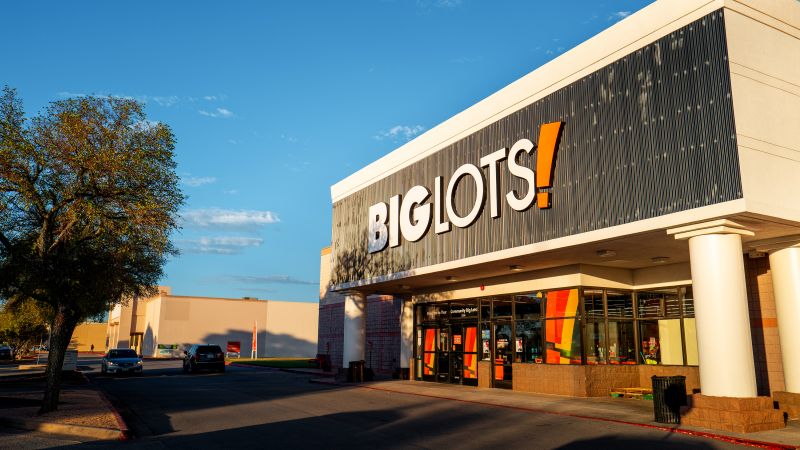Big Lots, the discount chain that filed for bankruptcy in September, said Friday that it agreed to a sale transaction with an investment firm, allowing hundreds of stores to stay open by transferring its property to other retailers and companies.
The Columbus, Ohio-based company recently announced it was preparing to close its remaining 963 locations after an acquisition by private-equity firm Nexus Capital Management fell through. Big Lots’ new deal is with Gordon Brothers Retail Partners, which will facilitate the transfer of its brand, stores and distribution centers.
Variety Wholesalers, which owns more than 400 retail stores including Bargain Town, Bill’s Dollar Stores and Maxway, will acquire between 200 and 400 Big Lots stores and up to two distribution centers, according to Big Lots’ news release.
Big Lots’ new deal could prevent thousands of its employees from being laid off. Variety Wholesalers said it may employ Big Lots staff at the stores and distribution centers, as well as some corporate associates.
“This sale agreement and transfer present the strongest opportunity to preserve jobs, maximize value for the estate and ensure continuity of the Big Lots brand. We are grateful to our associates nationwide for their grit and resilience throughout this process,” said Bruce Thorn, Big Lots’ president and chief executive.
It’s unclear how many Big Lots employees could remain but up to 555 corporate employees were at risk of losing their job, according to a layoff notice. Another 505 employees were at risk in Pennsylvania beginning January 6, according to another notice filed by the company.
A Big Lots spokesperson told on Saturday that they could not provide additional details about the deal.
Big Lots is among the many well-known retailers to file for bankruptcy in 2024 as consumers cut into discretionary spending. Last week, Party City announced it filed for bankruptcy protection and would close all of its more than 800 stores.
Retail chains have cited high inflation and interest rates for struggling sales. Meanwhile, consumers have sought value over lower costs a key reason bargain stores have struggled while Walmart and Amazon have thrived.
